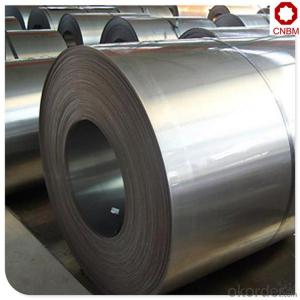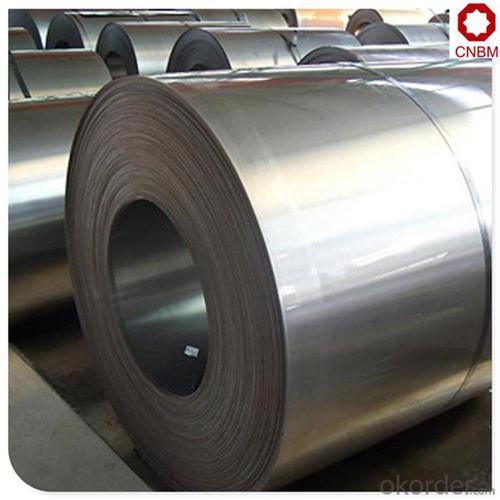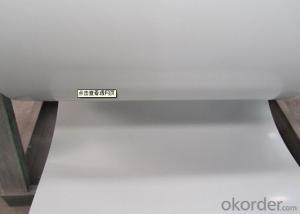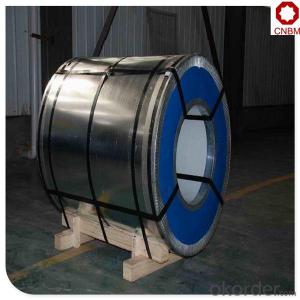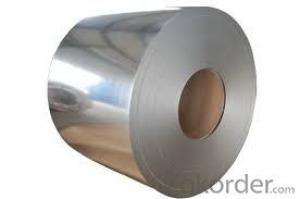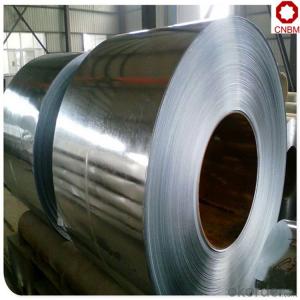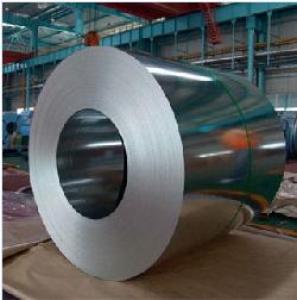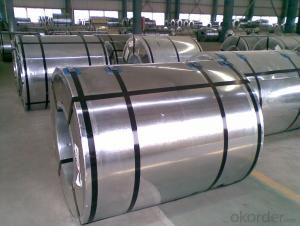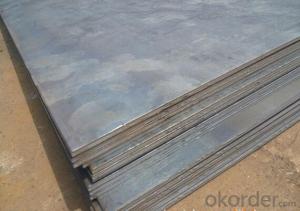Steel sheet coil S250GD+Z hot deipped galvanized
- Loading Port:
- China main port
- Payment Terms:
- TT OR LC
- Min Order Qty:
- 25 m.t.
- Supply Capability:
- 34000 m.t./month
OKorder Service Pledge
OKorder Financial Service
You Might Also Like
Specification
Size Range
Thickness: 0.30 to 2.50 mm
Width: 600 to 1,500 mm
Length: As per requirement
Unit Weight
Coil: 1.0 MT to 8.0 m/tons
Coating
Z80, Z100, Z120 upto Z275
Regular Spangle, Minimized Spangle available
Bright and Matt Finish
Applications
For covers (roof), simple forming, hand and machine folding
For structures requiring simple forming
For hand and machine folding and for ordinary shaping
For ordinary deep drawing and special shaping
For extra-deep drawing and special shaping
For covers (roof), simple forming, hand and machine folding
For structures requiring simple forming
For hand and machine folding and for ordinary shaping
For ordinary deep drawing and special shaping
For extra-deep drawing and special shaping
Standard and Grade :
Hot-dip galvanized steel coils | ||||
ASTM A653M-06a | EN10327:2004/ 10326:2004 | JISG 3302-2010 | AS-NZS 4534-2006 | |
Commercial quality | CS | DX51D+Z | SGCC | G1+Z |
Structure steel | SS GRADE 230 | S220GD+Z | SGC340 | G250+Z |
SS GRADE 255 | S250GD+Z | SGC400 | G330+Z | |
SS GRADE 275 | S280GD+Z | SGC440 | G350+Z | |
SS GRADE 340 | S320GD+Z | SGC490 | G450+Z | |
SS GRADE550 | S350GD+Z | SGC570 | G550+Z | |
S550GD+Z | G550+Z | |||
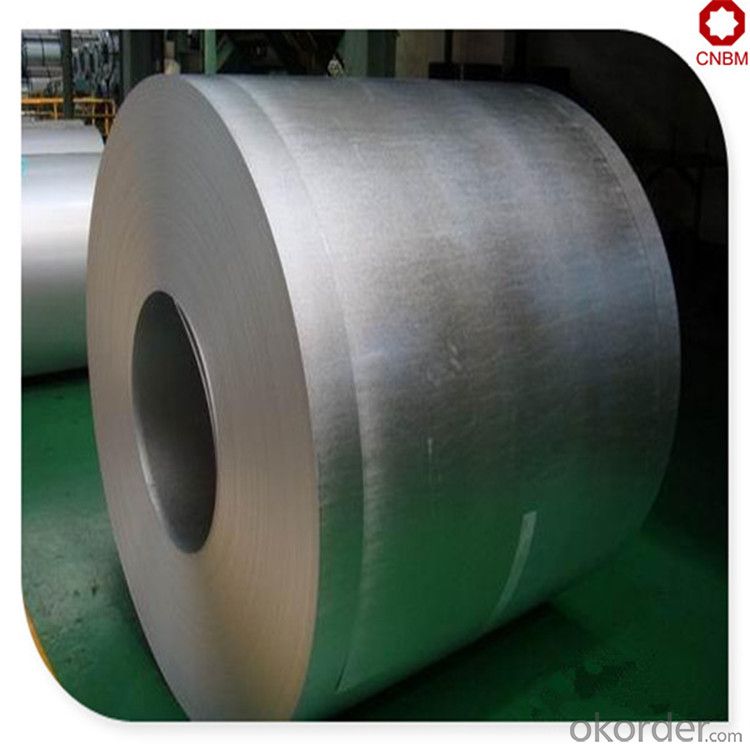
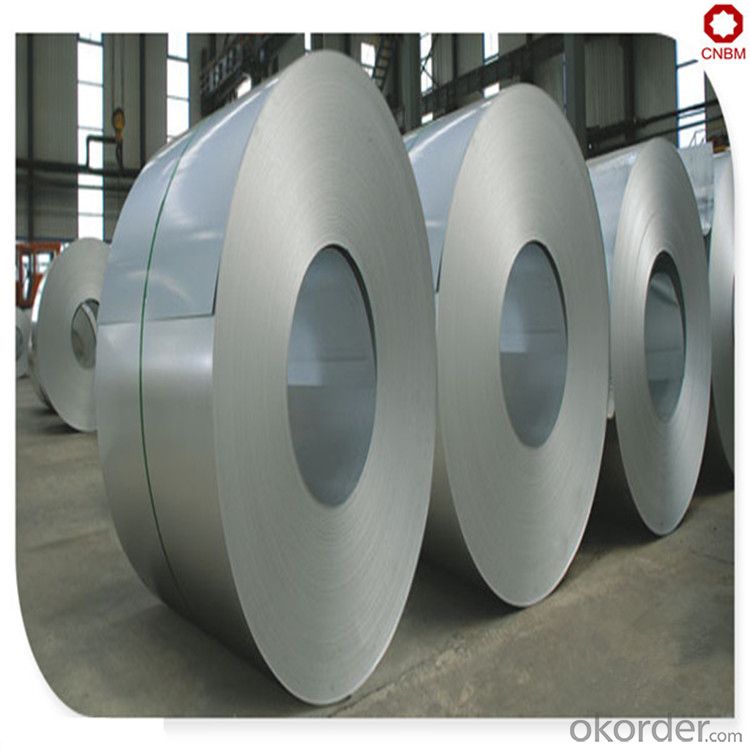
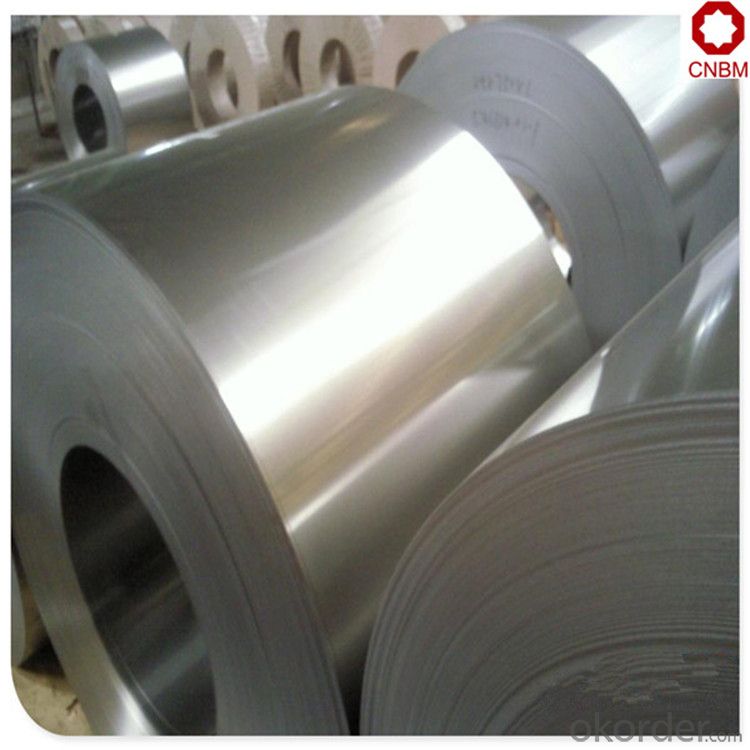
FAQ
Q: How do you guarantee the quality of your product?
A: Every process will be checked by responsible QC which insures every product's quality.
Q: How much is your delivery time?
A: Normally within 30 days of receipt of LC original or prepayment, but mostly according to the specific requirements or the quantity
Q: I need sample, could you support?
A: We can supply you with the sample for free, but the delivery charges will be covered by our customers. For avoiding the misunderstanding, it is appreciated if you can provide the International Express Account for Freight Collect. Also you can have a visit to us, welcome to CNBM!
Certificate:
CNBM International is highly recognized by its business partners and clients all over the world and has obtained rapid development under the spirit of win-win. We will carry on the mutual beneficial, innovative and revolutionary trading structure as we did before, create value for our employees, share holders and clients and benefit the whole society in our future development
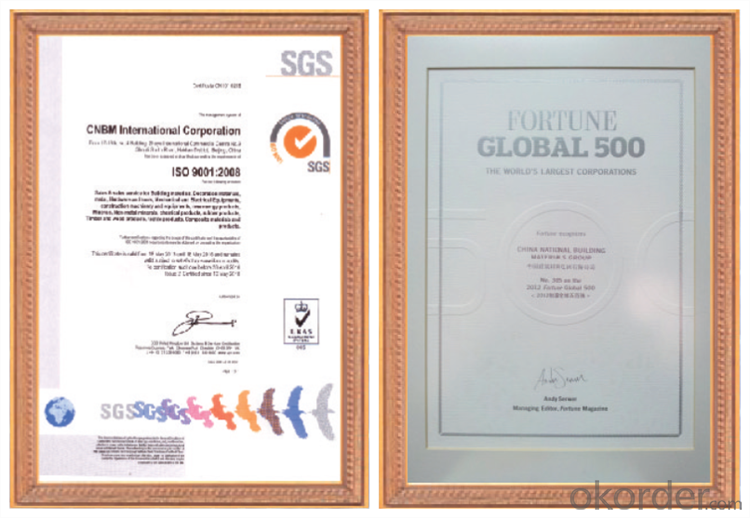
- Q: How do steel coils impact the environment?
- Steel coils can have both positive and negative impacts on the environment. On one hand, the production of steel coils requires significant amounts of energy and emits greenhouse gases, contributing to climate change. Additionally, the extraction of raw materials for steel production can lead to deforestation and habitat destruction. On the other hand, steel is highly recyclable, reducing the need for new steel production and saving energy and resources. Proper waste management and recycling practices can mitigate the negative environmental impacts of steel coils.
- Q: I noticed a friend's appliances are not magnetic, and mine are. Both are stainless steel. Are there two types of stainless steel or something? Thanks
- If the non magnetic one is has a brighter finish it may be that it is a ferritc stainless steel which depends only on high chromium content to keep it stainless,the duller one is likely to be the austenitic type which contains nickel as well as chromium and is usually non or only faintly magnetic and with a dull finish.Chromium rich stainless steels(ferritic and martensitic grades) are designed to be used for cutlery and strength application are always strongly magnetic (quite often permanent magnets).Stainless steels containing at least 18%chromium and 8+% of nickel are designed to be corrosion resistant and weldable,this type of steel(austenitic) is not ferromagnetic in the annealed state but the lower grades do become magnetic after cold work(hammering bending etc.The difference between magnetic grade or not rests in the crystal structure.In the austenitic types the structure is the same as that of gold and copper which is cubic close pack and,in steel,is a non magnetic form;but in low grades cold working can cause some breakdown of the austenite to the magnetic room temperature form of iron known as ferrite.Ferrite has the ordinary body centred body centred cubic form of iron which is magnetic.All of the stainless steels depend upon Chromium to form an anti-corrosion barrier at their surface;but this is only reliable in oxidising conditions(like the open air)They nearly all discolour and even rust if trapped in damp conditions where oxygen potential is low(as under wet plastic or underground ).
- Q: basically a builder told us steel is good but when we got MFI, BQ they only have acrylic
- Steel is expensive and heavy - the porcelain finish can be chipped and scratched. Yes it is colder - like your cook pots. Acrylic is cheaper, lighter and easier to handle for the installer. It can get scratched. There are companies that can refinish an old tub by putting an acrylic liner over it instead of removing and replacing the old steel ones. Acrylic has come a long way. But I still prefer steel.
- Q: a concrete or steel building?also, what is the density of concrete and steel? is concrete heavier in steel for the same volume?
- minorchord2000 an engineer using a non-metric measuring system - it's priceless
- Q: What bike companies make the best Steel Road bikes?
- Giant brand road bikes
- Q: How do steel coils contribute to the HVACR equipment industry?
- Efficient heat transfer and effective functioning of HVACR systems are crucial roles played by steel coils in the HVACR equipment industry. These coils, made of high-quality steel, are integral components of air conditioners, heat pumps, refrigerators, and boilers. Facilitating heat transfer is one of the primary functions of steel coils in HVACR equipment. Designed to efficiently transfer heat between the refrigerant and the surrounding air or water, these coils utilize a large surface area and good thermal conductivity. As a result, HVACR equipment can effectively cool or heat a given space, ensuring optimal energy efficiency and reducing operating costs in residential and commercial applications. In addition to heat transfer, steel coils contribute to the overall durability and longevity of HVACR equipment. The use of corrosion-resistant steel in these coils helps prevent damage from moisture and other environmental factors. This reliability is particularly important as HVACR systems often face harsh conditions and must operate continuously to maintain comfortable indoor environments. Furthermore, steel coils offer versatility and customization options to meet specific HVACR requirements. Manufacturers can vary the size, shape, and configuration of the coils to fit available space and optimize performance. This flexibility enables efficient integration of steel coils into different HVACR equipment, ensuring they meet the specific heating and cooling needs of diverse environments. In conclusion, steel coils are indispensable in the HVACR equipment industry. They enable efficient heat transfer, enhance durability, and offer customization options, ensuring effective functioning and energy efficiency of HVACR systems. Manufacturers can provide reliable and long-lasting solutions for heating, ventilation, air conditioning, and refrigeration needs in residential and commercial settings by incorporating high-quality steel coils into their products.
- Q: What is the weight of a typical steel coil?
- The weight of a typical steel coil can vary depending on its size and thickness, but it typically ranges from a few thousand pounds to several tens of thousands of pounds.
- Q: How are steel coils inspected for thickness using ultrasonic testing?
- Steel coils can be inspected for thickness using ultrasonic testing, which is a non-destructive testing method. In this process, a handheld ultrasonic thickness gauge is used to measure the thickness of the steel coil. The ultrasonic thickness gauge emits high-frequency sound waves that travel through the steel coil. These sound waves bounce back from the backside of the coil, creating an echo. The time taken for the echo to return to the gauge is measured and used to calculate the thickness of the coil. The gauge consists of a transducer that emits the sound waves and a receiver that detects the echoes. The transducer is placed on the surface of the coil, and a coupling gel or oil is used to ensure a good acoustic contact between the transducer and the steel surface. The transducer emits a short burst of sound waves, which penetrates through the steel coil and reaches the backside. When the sound waves encounter any changes in the thickness of the coil, such as defects or variations, they get reflected back to the transducer. The receiver detects these echoes, and the time between the emission and reception of the sound waves is measured. Using the known speed of sound in steel, the time taken for the sound waves to travel through the coil and back can be converted into a thickness measurement. This provides an accurate assessment of the thickness of the steel coil at various points. Ultrasonic testing is a reliable and efficient method for inspecting the thickness of steel coils. It allows for quick measurements without damaging the material, making it suitable for quality control and ensuring compliance with manufacturing specifications.
- Q: How are steel coils priced?
- Steel coils are priced based on various factors such as the current market demand and supply, raw material costs, production and operational expenses, transportation costs, and other market dynamics. Additionally, factors like quality, specifications, and any additional processing or customization required can also influence the pricing of steel coils.
- Q: earlier name of jsw steel ltd. may be jindal iron steel ltd.
- JSW Steel Ltd - Profile Office Address 5 A, Jindal Mansion, Dr A G Deshmukh Marg, Mumbai Maharastra 400026 Phone 022-23513000 Business Summary JSW Steel Limited Formerly known as Jindal Vijayanagar Steel Limited. The Company's principal activity is to manufacture hot rolled steel coils in India using the revolutionary Corex technology. In addition, the Company also manufactures steel plates and sheets. It manufactures steel using oxygen based iron and steel through continuous casting and hot rolling. Executive Team Executive Name Designation Savitri Devi Jindal Sajjan Jindal Dr. B N Singh Chairperson Additional Director Vice Chairman Managing Director Joint Managing Director
Send your message to us
Steel sheet coil S250GD+Z hot deipped galvanized
- Loading Port:
- China main port
- Payment Terms:
- TT OR LC
- Min Order Qty:
- 25 m.t.
- Supply Capability:
- 34000 m.t./month
OKorder Service Pledge
OKorder Financial Service
Similar products
Hot products
Hot Searches
Related keywords
